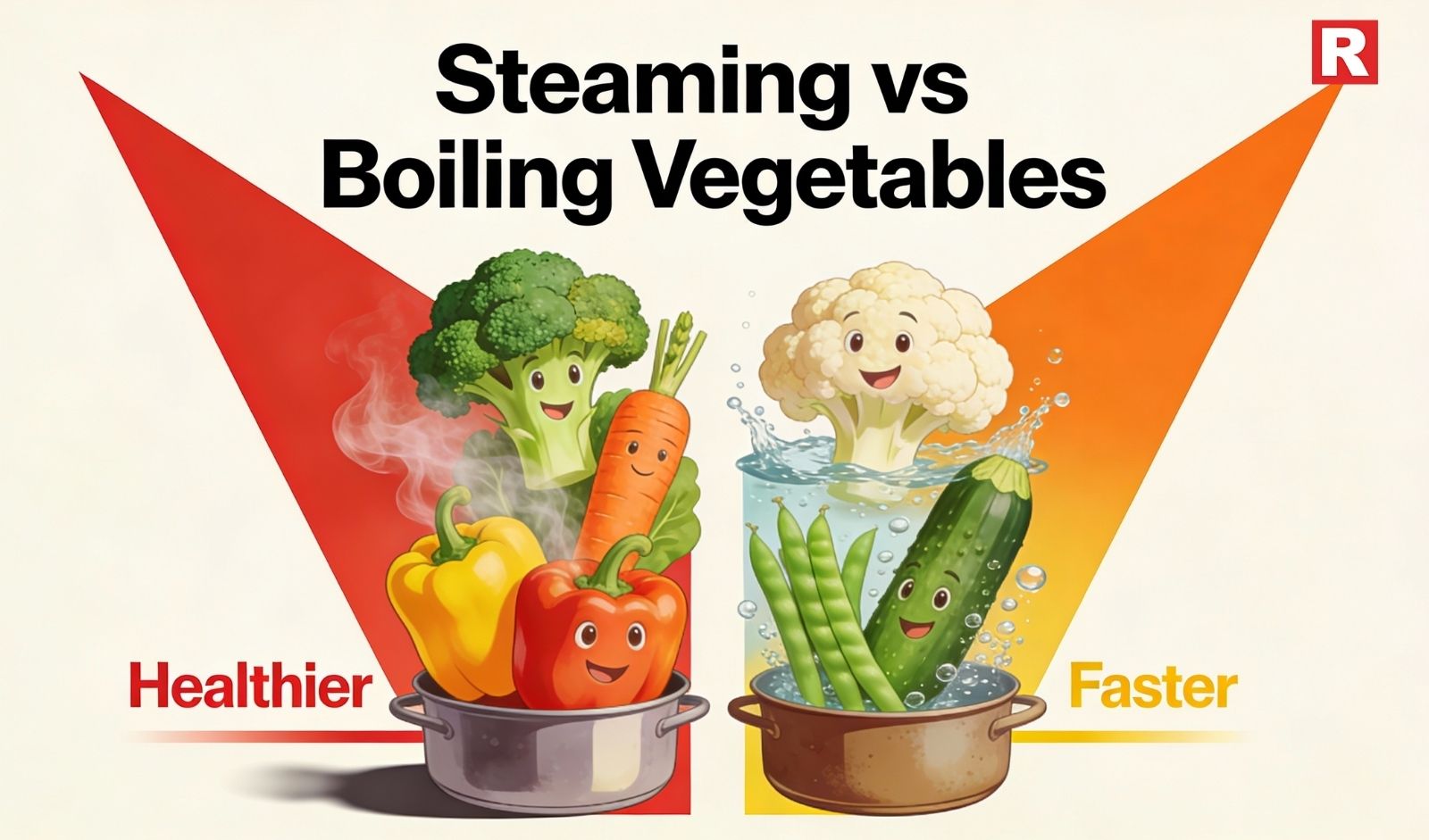
In last few years India has seen a rise in the market for Organic food products. Lots of cold pressed juice, organic tea and herb based product companies have made a way into the Indian market. Organic packaged food and beverages is an emerging niche market in India and its primary consumers are high-income urbanites. As demand for organic food in the metro cities increase, the companies in this sector are witnessing notable growth with the entry of several new players in the organic food market.
“The market size for Indian organic packaged food is expected to cross INR 871 million by 2021 from INR 533 million in 2016, growing at a rate of 17 per cent,” says ASSOCHAM-EY report released yesterday.
The substantial growth of this sector is attributed to an expanding urban population base, rising health concerns, growing consumer spending on food products and deterioration of food quality. These four primary factors are also driving the global organic food market, the joint study mentioned.
“In addition to the growing domestic market, India is the second largest exporter of organic products in Asia after China. The increasing export market coupled with the Government’s support has made organic cultivation in India highly successful,” shares Amit Vatsyayan, Partner, EY. Indian organic food exports were estimated at US$299 million during 2015-16 with total volume of 263,688 MT.
India-based Sresta Natural Bioproducts Pvt. Ltd. has emerged as the market leader, with 37% value share of the packaged organic food market and 7.8% share of the packaged organic beverage market. It has increased its share in the organic food market in recent years, while smaller niche players have taken significant share away from it in the organic beverage market, adds the study.
The major export destinations were the US, European Union, Canada and New Zealand. It is assumed that most of the remaining quantity is sold in local markets. Oilseeds comprised half of India’s overall organic food export, followed by processed food products at 25%.
According to ASSOCHAM-EY study, India currently holds the ninth position among 178 countries that actively practice organic agriculture. At present, the country is home to more than 835,000 organic producers, 699 processors, 669 exporters and 1.49 million ha area under organic cultivation. However, with only a meagre 0.4% of the total agricultural land area designated for organic cultivation, the industry presents extensive scope for expansion.
Pinakiranjan Mishra, Partner and National Leader, Consumer Products and Retail, EY, says, “With Indian consumers’ increased inclination and awareness towards health and nutrition, the outlook for organic products in India has been very positive. Consumers are today acceptingorganic food and beverages as part of their daily diet, thereby, creating significant growth opportunities for existing as well as new industry players in this segment. With the participation of numerous Indian and multinational companies and their expansion in the market, India is rapidly becoming a production hub for organic foods.”
India has a remarkable potential to produce all varieties of organic products, owing to the existence of various agro climatic zones within its borders. The total area under organic certification was 5.71 million ha in 2015-16. This included 26% cultivable area with 1.49 million ha and 74% (4.22 million ha) forest and wild area for collection of minor forest produce.
Among the states, Madhya Pradesh has the largest area under organic certification (4.62 lakh ha) followed by, Maharashtra (1.98 lakh ha) Rajasthan (1.55 lakh ha), Telangana (1.04 lakh ha), Odisha (0.96 lakh ha), Karnataka (0.94 lakh ha), Gujarat (0.77 lakh ha) and Sikkim (0.76 lakh ha). These states had a combined share of 90% of the area under organic certification in 2015-16, highlighted the study.
In terms of organic crops, the combined share of the top 10 categories of organic food crops is around 99%. The top four categories (with a share of around 85%) include sugar, oilseed, fiber and cereals and millets.
“According to our findings, metropolitan cities have witnessed a 95% increase in demand in the last five years,” adds Vatsyayan. “Many organic food companies are adopting the online route to expand their consumer base. The brick and mortar organic stores are usually located in metro and mini metro cities. These companies are reaching out to the rest of the consumers through online channels,” he further mentioned.
With increasing incidence of health problems such as diabetes, anxiety and stress plaguing urban India, many entrepreneurs are venturing into the area of organic café and marketplace.

As India’s ageing population grows, the conversation around healthy living after 60 is becoming more urgent. It’s not just about living longer—it’s about living well. The recent Indo–Swedish workshop on Ageing and Health, organised by the Indian Council of Medical Research (ICMR) and Sweden’s FORTE (Research Council for Health, Working Life and Welfare), shed light on a simple truth: food is one of the strongest levers for physical strength, mental wellbeing, and longevity.
This feature breaks down what “smart eating” really means for older adults, drawing from research insights and practical, India-friendly habits.
Why Nutrition Matters More After 60
Once you cross 60, your metabolism slows, digestion weakens, and nutrient absorption declines. The same food that kept you energised at 40 may no longer meet your body’s changing needs. Research presented at the Indo–Sweden workshop found that:
- Non-communicable diseases like hypertension, diabetes, and arthritis increase rapidly with age.
- Women, in particular, face higher risks of nutritional deficiencies and chronic illness.
- Dietary choices directly influence not only physical health, but also emotional stability and mobility.
A senior’s ability to walk comfortably, think clearly, and stay cheerful often depends on what’s on their plate.
Healthy ageing is not about eating less—it’s about eating smarter and staying connected through food.
The Food–Mood Connection
Ageing often brings emotional challenges—loneliness, anxiety, loss of appetite, and mild depression. Nutrition and emotional wellbeing are deeply intertwined.
1. Eat Together, Feel Better
Social dining has proven benefits for mood and appetite among older adults. Indian models like the Nightingales Medical Trust and the Calcutta Metropolitan Institute of Gerontology combine midday meals with group activities, creating a sense of community and purpose.
Families can replicate this by encouraging elders to eat with relatives, neighbours, or local senior groups at least a few times a week. Regular shared meals improve not just nutrition, but also motivation and happiness.
2. Choose Foods That Support Mental Health
Omega-3 fatty acids, complex carbohydrates, and magnesium-rich foods like lentils, leafy greens, seeds, and nuts can reduce stress and support brain function. Traditional Indian staples—dal, khichdi, curd, and seasonal fruits—naturally combine these elements.
3. Keep Meals Colourful and Balanced
Each colour on the plate brings unique antioxidants: green for detoxification, red for heart health, orange for eye health, and purple for brain function. A simple way to improve emotional and cognitive health is to “eat the rainbow.”
Mood follows food—the more variety and balance on the plate, the steadier the mind becomes.
The Food–Mobility Connection
Mobility is one of the first things ageing affects. Joints stiffen, muscles weaken, and everyday movements can become difficult. But the right diet can delay or even reverse this decline.
1. Prioritise Protein
Protein supports muscle repair and bone density. Each meal should include at least one protein source—paneer, curd, lentils, eggs, soy, fish, or chicken. For vegetarians, mixing grains and pulses (like dal-chawal or khichdi) ensures complete amino acid intake.
2. Don’t Ignore Calcium and Vitamin D
Bone health depends on daily calcium intake from ragi, milk, curd, and leafy greens. Sunlight exposure of 15–20 minutes a day is equally vital for Vitamin D synthesis.
3. Stay Hydrated
Ageing reduces thirst sensitivity. Soups, buttermilk, and coconut water are excellent hydration choices that also add electrolytes and probiotics.
Muscles may age, but they don’t retire—they just need consistent fuel.
An Ideal “Smart Eating” Day Plan
| Time | Meal | Benefit |
|---|---|---|
| Morning | Warm water with lemon; 15 min sunlight | Hydration and Vitamin D boost |
| Breakfast | Moong dal chilla with paneer | High protein for muscle maintenance |
| Mid-morning | Papaya or guava + roasted chana | Fibre and antioxidants |
| Lunch | Brown rice or jowar roti + rajma + spinach + curd | Balanced macro and micro nutrients |
| Evening | Buttermilk + handful of nuts | Energy and digestive support |
| Dinner | Vegetable khichdi with ghee + salad | Light, nourishing, easy to digest |
| Before bed | Haldi milk or herbal tea | Promotes sleep and reduces inflammation |
Small, consistent adjustments—like adding a spoon of ghee, eating early dinners, or replacing fried snacks with roasted options—have a cumulative effect on wellbeing.
Women After 60: Closing the Nutrition Gap
Older women in India often eat less and later than the rest of the family. Over time, this leads to deficiencies that worsen fatigue and bone loss. Experts recommend simple corrections:
- Include a protein source at breakfast, such as curd or eggs.
- Pair iron-rich foods (like spinach or methi) with lemon juice to improve absorption.
- Consume ragi, paneer, or sesame seeds regularly for calcium.
Balanced meals are particularly important for postmenopausal women, who face rapid bone density loss.
Beyond Nutrition: Food as Preventive Medicine
The Indo–Sweden workshop emphasised that well-designed diets can reduce dependence on medication.
- Fibre and whole grains help regulate blood sugar, lowering diabetes risk.
- Probiotics and antioxidants improve digestion and immunity.
- Regular, balanced meals stabilise mood, sleep, and cognition.
Nutrition, movement, and mental wellness reinforce each other—creating a cycle of healthy ageing.
Practical Barriers and How to Overcome Them
- Low appetite: Break meals into 4–5 smaller portions and use appetising herbs like mint or ginger.
- Access to healthy food: Encourage community kitchens, meal delivery for seniors, or neighbour-supported cooking circles.
- Living alone: Plan a weekly “meal sharing” day or virtual lunch with family. Even digital connection reduces isolation.
Training caregivers to monitor eating habits and hydration can also make a measurable difference in long-term health outcomes.
The Broader Lesson: Eat for Energy, Not Just Survival
“Every meal after 60 is a chance to rebuild strength, sharpen focus, and renew joy.”
Ageing gracefully is not about restrictive diets—it’s about adapting intelligently. The ICMR–FORTE findings highlight that when older adults combine balanced nutrition, social eating, and gentle physical activity, their health scores rise significantly across mood, strength, and mobility.
In essence, food is medicine, community, and motivation—all served on one plate.
Sources: Insights adapted from the ICMR–FORTE Joint Planning Workshop on Ageing & Health (New Delhi), including sections on well-being, NCD burden, determinants of health, mental health, and care models.

Airports are no longer just transit points; they have steadily evolved into food and beverage (F&B) hubs offering travellers a mix of dining, shopping, and experiences. For many passengers, food is often the first source of comfort in an otherwise hurried environment, making a strong F&B ecosystem an essential part of modern air travel.
A recent study by IRHPL, one of India’s fastest-growing retail groups, highlights how airport operators and food outlets are adapting by combining speed, variety, and quality to meet shifting consumer expectations. The report reveals that regional cuisines continue to dominate traveller preferences, with South Indian fare topping the charts nationwide, followed closely by North Indian offerings.
South Indian dishes remain popular with both domestic and international flyers, underscoring a tendency among travellers to opt for familiar and comforting flavours even in transient spaces like airports. Convenience-driven formats and beverages are also emerging as key contributors to sales, reflecting the dual demand for quick service and quality experiences.
Commenting on the insights, Naresh Sharma, CEO, IRHPL Group of Companies of IRHPL said, “While global fast-food chains continue to expand their footprint across airports, it is regional cuisine that still dominates menus. This highlights a crucial insight that travellers seek familiarity and cultural connection even in transit, making it essential for airports to tailor their offerings to local tastes rather than relying solely on international trends.”
Convenience driving Consumption
Travellers are increasingly opting for quick-service formats over traditional dine-in meals at airports, according to recent trend data. Between 50–65% of overall F&B spending is directed towards grab-and-go counters and convenience-led outlets, while dine-in restaurants account for just 25–35%.
The preference is especially strong among short-dwell passengers, who often prioritize speed and efficiency but still seek quality in their food choices. The findings underscore how convenience continues to shape consumption patterns in airport dining.
“Seeing the travellers’ preferences, airports have already responded with investments in quick-service outlets, kiosks and pre-packaged offerings, ensuring that travellers can enjoy fresh, tasty meals even with limited time before flights.”
Beverages Driving the Sales
Interestingly, beverages are driving the F&B sales at airports, surpassing food in contribution. Nearly 70% of airport F&B revenue comes from beverages such as coffee, juices and alcohol, while the remaining 30% accounts for food. Specialty beverages such as craft coffee and premium bars contribute 10–15% of sales, while lounges and areas for high-dwell times in premium hubs record the highest share. This trend showcases the potential of beverage-focused outlets to drive both footfall and revenue that complement quick-service food formats.
Travellers Sensitive to Pricing
Airports provide the convenience and environment that justify a premium spend on food and beverages, but travellers remain price-conscious, according to industry insights. The steady rise in airport F&B sales suggests that passengers are willing to pay slightly more for quality meals in comfortable settings, provided there is value attached.
This has led operators and F&B partners to focus on a balanced approach—combining accessible grab-and-go counters with premium dining concepts to capture a wider customer base.
Data also points to a clear hierarchy in food choices, with South Indian cuisine leading demand, followed by North Indian offerings. With grab-and-go formats dominating consumption, airports are prioritizing investments in quick-service outlets, while also expanding premium dining options to cater to short-dwell and high-spend travellers alike.
As airports evolve into culinary destinations, aligning offerings with traveler behavior will remain key to optimizing both experience and revenue.

With more and more people choosing to stay out of home and working, there is a continuous rise of ready to eat and pre-cooked meals.
According to a latest research by Velocity MR, a leading market research and analysis company, RTE consumption was highest among the employed consumers and in the age group of 26-45. The study also observed that the RTE consumption is higher among the female respondents in these metros, as compared to the male respondents.
Most respondents confirmed that they preferred consuming RTEs in the form of snacks and the preference for vegetarian RTE foods was higher that the non-vegetarian RTE’s. While most respondents claimed that they like to consume RTE as and when required, the average consumption rate of RTE’s was observed to be fortnightly. Brands like Maggi, Knorr, Amul, Chings and MTR topped the list of most preferred RTE brands.
“It is no surprise that the Ready-to-Eat market has been witnessing a steady growth in recent years. While consumers generally tend to prioritize healthy, home cooked meals over the convenience, counter food products; a large section of Indian consumers prefer Ready-to-Eat products, owing to their busy schedules and hectic lifestyle,” shared Jasal Shah, Managing Director & CEO of Velocity MR.
The top three contributing factors to the growth of the RTE segment are time-saving (72%), good taste (62%) and convenient cooking (60%). These factors and the growing working women population, also justify the higher number of women respondents preferring RTE, when compared to their male counterparts. This can also be seen as one of the driving forces behind most of the “health-food” category players venturing into the Ready-to-eat segment.”
The study was conducted among a sample size of 2000 respondents and covered prominent Indian metros including Delhi, Kolkata, Mumbai, Hyderabad, Bangalore, Chennai, Ahmedabad and Pune.
Highlights of the Study:
- 1 in every 3 consumers have consumed some form of Heat & Eat / RTE product in the past week
- Females consume RTE more than males in metros
- Snacks and Soups form the key consumed Heat & Eat / RTE products in both Veg and Non-Veg segments
- French fries, the most consumed snack is had by less than 70% of the consumers
- Chicken Nuggets, the most preferred non-veg snack is consumed by about 50% of the consumers
- Time saving and convenience of cooking are the two most sought-after benefits from RTE segment. Over 50% consumers also prefer it for the variety of items offered
- Maggi, Knorr, Amul, MTR and Chings are the most preferred brands in both Veg and Non-veg segments at an overall level, even though their penetration varies in different cities
- Some local flavors are also popular like:
- Delight Foods & MOM- Meal of the moment in Mumbai
- AL Fez in Kolkata
- Delight foods, Batchelors, Betty Corner in Pune
- Mother’s Recipe and Real Thai in Bangalore

India’s food system needs substantial public investments to expand and increase the quality of storage, handling and transportation infrastructure.
According to a report published by The prestigious Chicago Council on Global Affairs, India’s food system is largely unorganised and highly fragmented.
The report also underlines that the country must reform government procurement, tariff and tax policies affecting urban food delivery to feed its growing cities.
It also recommends ways to reduce regulatory complexity and enhance food testing capacity.
To improve the supply system, the paper further identifies areas of improvement in transit, warehousing, cold chains, retail and processing that could improve urban food security in India.
"The scale of food and nutrition needed to sustain that is hard to fathom and India's food system is already failing to deliver food security for all," said Alesha Black, Director of the Council's Global Food and Agriculture Programme.
"Now imagine when that population doubles in the next 40 years. India has to transform its food system to feed that urban growth," he said.
The report argues that the food system in India must transform to feed its growing cities.
Increasing urban employment and rising incomes portend significant growth for India's $360 billion food market.
Yet substantial public and private investments, as well as key regulatory reforms, are needed to update India's unorganised, fragmented food system, it said.
"There is no more fundamental measure of the well-being of a population than its food and nutrition security," Durkin said.
"India must make targeted public investments and create a path for the private sector to improve the state of urban nutrition and meet growing demand for food in India's cities," said the report.

Lately people are relying on bread and packaged food in India, but people may not be aware of the outcome from its consumption. According to a research by CSE the bread that we consume contain cancer-causing chemicals.
As per the findings, based on samples collected from Delhi, the organisation has prompted the union health minister to seek a report, even as bread manufacturers staunchly denied use of harmful ingredients in their products.
As much as 84 per cent of 38 commonly available brands of pre-packaged breads tested positive for potassium bromate and potassium iodate, according to the Centre for Science and Environment (CSE).
The two ingredients have been banned by many countries, listing them as "hazardous" for public health, stated the report.
There is no ban on these substances in India. The All India Bread Manufacturer's Association (AIBMA) denied widespread usage of potassium bromate. "Majority of Indian bread manufacturers do not use potassium bromate. We are going to present our point of view soon," shared Sudeep Ahuja Treasurer.
According to Ahuja, some companies use potassium bromate to increase the shelf life of breads. This ingredient is used widely in the US in breads, he claimed, suggesting that the substance isn't harmful. The association will meet with its members to discuss further course of action and present its views to the government, he said. CSE claimed that while one of the chemicals is a category 2B carcinogen possibly carcinogenic to humans the other one could trigger thyroid disorders.

Global alcoholic drinks volumes registered a decline of 0.7 percent in 2015, entering negative territory for the first time in more than a decade, shared research released by Euromonitor International
This translated into a loss of 1.7 billion litres of alcoholic drinks volume sales since 2014.
Historic growth narratives derailed due to the influence of macro headwinds hitting China, which recorded a 3.5 percent decline.
Brazil and Eastern Europe showed further weaknesses, falling 2.5 and 4.9 percent, respectively. While Western Europe and Australasia flatlined, North America’s 2.3 percent growth provided a shot of optimism in an otherwise sobering global landscape where even the potential of AMEA (Asia, Middle East and Africa) was diluted by currency volatility and commodity price fluctuations.
“While terms such as authenticity and craftsmanship are losing traction, the trajectories of sophistication, moderation, perceived exotic credentials, accessibility and restrained yet grounded aspirational attributes remain the key driving forces fuelling pockets of buoyancy,” shared Spiros Malandrakis, Senior Alcoholic Drinks Analyst.
Beyond those star performers, tequila and bourbon remained solid, while cognac bounced back strongly. Cider performed well but has softened as Americans move to hard sodadrinks. Rum and vodka find themselves amongst the worst performers, while still light white and red wine varietals join sparkling wines back to healthy levels.
“Premium English gin, Irish and Japanese whiskey, dark and non-alcoholic beer are the flag bearers of growth and it is no coincidence that those also happen to be the segments gaining further momentum with the ever important millennial demographic in mature western markets,” added Malandrakis.
“While initial forecasts suggest a gradual recovery from 2016, performance will remain substandard compared to historical trajectories. It is not the industry’s vision that is impaired but rather the horizon that can be treacherous.” Malandrakis concluded.
Copyright © 2009 - 2026 Restaurant India.














